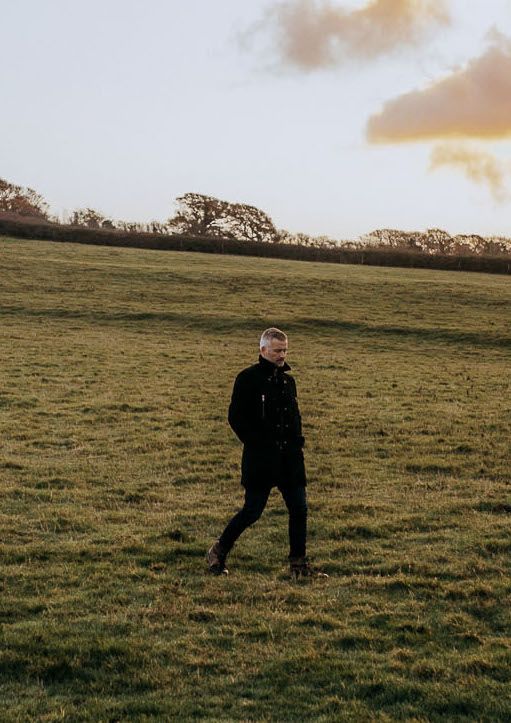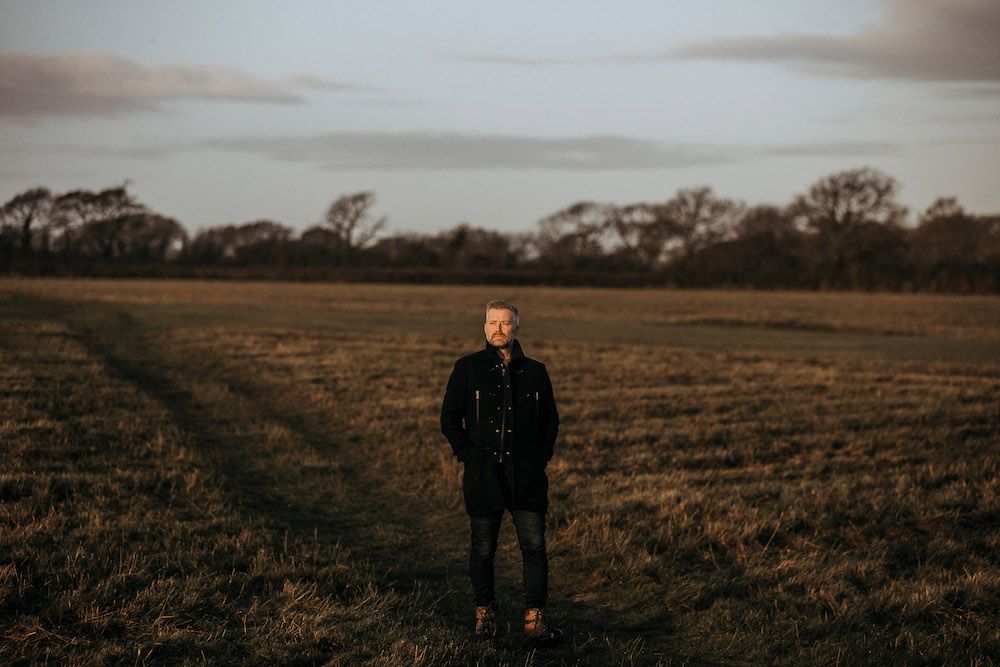After years battling drink and drug addiction, walking saved Jonathan Hoban’s life. Here the psychotherapist and former musician explains how nature can help us find answers to our problems – and true happiness. The great outdoors, indeed…
Look deep into nature, and then you will understand everything better.” From Albert Einstein’s words of wisdom, to Buddha urging his disciples to meditate in the jungle to reach a higher state of consciousness, the restorative effects of nature have long been understood.
For centuries, millions have reaped physical and emotional rewards from being in the great outdoors – including former rock musician turned therapist Jonathan Hoban, who says being outside “guided and nurtured” him through recovery from substance abuse and grief.
Since retraining in psychotherapy 20 years ago, Jonathan has devised Walking Therapy, which merges walking in nature with counselling. Be it strolling along a meandering riverbank, power walking through a dense pine forest, or sitting quietly in a postage stamp patch of parkland, he swears by the emotional healing power of outside spaces.

“It’s not only about that low aerobic exercise, but when we walk in nature, our brain releases oxytocin, which is very meditative. And putting time for a walk in the diary – making time for yourself – is important because when we’re busy, we never make time for ourselves,” explains Jonathan.
Away from their phones, computers, and the stresses of work and daily life, Jonathan’s clients discover the mental space to unravel problems that would otherwise stay buried, and connect to what he calls their “instinctive, wilder side”, or “primal energies”.
“You might not want to do a job anymore but push down those feelings, and suppress that intuition, because you’re frightened of what you need to do with your life,” says Jonathan, adding that we’re in the midst of an “epidemic of stress, anxiety and depression”.
A nation of over-workers, many of us are awash with stress hormone cortisol, which peaks when we’re frazzled. Inevitably, we lose our sense of personal boundaries, which is why we work through our lunch breaks, agree to overtime, or take work home at weekends – all of which damage personal relationships. Walking, though, has the power to rectify this imbalance.
“The worst torment in the world is not being abandoned by someone else – it’s when you abandon yourself. But in nature, we find the silence to hear our true thoughts and, in doing so, start to consider ourselves again,” says Jonathan.
In his book, Walk With Your Wolf: Unlock your intuition, confidence and power, which he wrote for people who want to become better connected to themselves but can’t afford counselling, Jonathan recommends keeping a walking diary. By jotting down one-word feelings before, during, and after each walk, we can be inwardly honest about our feelings, and discover what we need to lead a balanced and happy life.
“The first boundary is with yourself and that commitment of ‘I’m going to do this for me’,” says Jonathan, adding that technology-free walking is another step in the right direction.
“People want to feel loved and important, so are always wondering: ‘Is there another email?’ Our esteem is so based around what’s happening on our phones, it keeps our eyes looking down instead of up. Our eyes need to be up in order to connect with something – or someone – else.”
My clients inspire me every single day. The power of what they're able to achieve fascinates me
Walking in nature, says Jonathan, helps us find solutions to problems.
“When you walk, endorphins get released in the brain and you can start being more solutions-focused and strategically-focused,” he says.
“So is it about taking a four-day week, quitting your job to do something different, or committing to take more breaks during the working day? The brain can work for 40 minutes maximum and it then needs a 20-minute break, otherwise it will not work effectively. I’ve got more people to take more breaks throughout their day, and their efficiency and productivity has gone up by about 60–70%.”
Jonathan would have done anything for such insight 23 years ago when he was in the grip of his addictions – dependent on cocaine and alcohol, blotting his pain after losing his mum to colon cancer when he was 17.
His problems started earlier, at 13 – “a little bit of gin here and there” – to cope with being bullied at school.
“The world didn’t feel safe. I was bullied from the age of 10, and when mum died, the loss I felt was indescribable. I was so angry because I thought she’d endure anything. People say ‘talk about your feelings’ but when the pain is that deep, you can’t put it into words. I was drinking, doing cocaine, and smoking marijuana, and then, at 22, when I was trying to get clean, my brother died.”
The trauma of losing his brother triggered an escalation of drug use to catastrophic levels until “a light switched on” inside Jonathan. Realising he would die if he did not seek professional help, he entered rehab, arranged counselling, and got sober.
Then in the weeks and months that followed, he began walking every day on Wimbledon Common or Richmond Park, a process that gave him the “strength to rebuild his life” and finally helped him conquer depression and anxiety.

“My addictions gave me a sense of control, because I could choose when and where I decided to smash myself apart. It gave me a sense of autonomy when I’d lost my mum and brother, even though I was completely out of control, with no autonomy. But when I took a walk, that too gave me a sense of autonomy,” he says. “For that moment in my life, I had a purpose. I was moving forward and had control.”
Five years ago, Jonathan moved from south-west London, where he developed Walking Therapy, to the Isle of Wight, where he lives with his wife and two daughters, and runs residential retreats for burned-out city workers. More often than not, on day three, he witnesses a flood of emotions as clients relax and the adrenaline wears off, exposing their true feelings.
“We always look at drugs like alcohol but never consider the drugs that we create in ourselves, in our minds, with adrenaline being the main one,” says Jonathan, who believes walking and finding the mental space to confront difficult emotions can treat anxiety and depression long before they take hold.
“If you think about anger being an energy, if you push that energy into a boiler, it will explode or implode. If it implodes, you get depression, but before it explodes, an alarm goes off – that’s anxiety. You’ve got to deal with the pressure that’s building up in the boiler beforehand,” he explains.
As a psychotherapist, Jonathan feels privileged to be able to help others, using nature as a healer – a gift he luckily stumbled across before it was too late.
“My clients inspire me every single day,” he smiles. “The power of what they’re able to achieve fascinates me, which is why if someone says, ‘I’m depressed, I’ll never get over it,’ I never carry that disbelief. ‘It will work,’ I say. ‘But you’ve got to put the work in.’”
For more from Jonathan, visit jonathanhoban.com


Comments